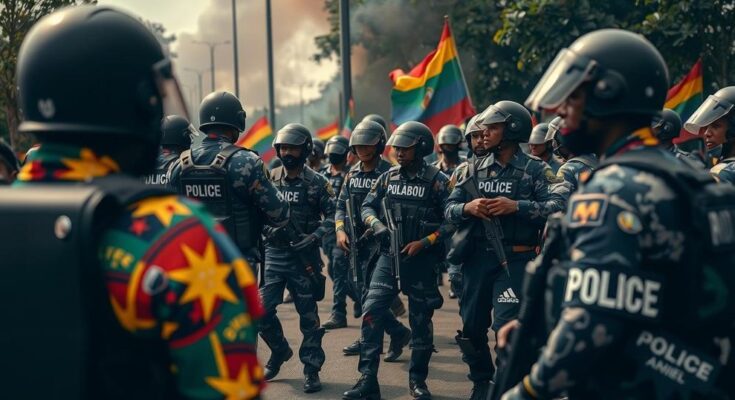The recent protests in Maputo, Mozambique, following the controversial presidential election have led to the deaths of numerous young individuals, including 16-year-old Antonio Juaqim, who was shot by police. The unrest stems from allegations of election rigging by the ruling Frelimo party, prompting the public to voice their frustrations through nightly protests. Human Rights Watch reports that approximately 40 individuals have lost their lives during these protests, sparking outrage against law enforcement practices.
In the wake of the recent Mozambican presidential election held last month, the nation’s capital, Maputo, is gripped by protests and violence, culminating in the tragic deaths of several young individuals, including 16-year-old Antonio Juaqim. Engaging in opposition-led demonstrations characterized by the banging of pots and pans to express dissent against the electoral outcome, Antonio was shot by police amidst the unrest, igniting fierce criticism over the heavy-handed approach of law enforcement. Manuel Samuel, Antonio’s uncle, recounted watching CCTV footage revealing police firing on protesters, which has exacerbated public outrage against the ruling Frelimo party’s leadership.
As the opposition and supporters contest the election results, which granted Frelimo 71% of the vote, allegations of rigging and misconduct have arisen, notably from Venâncio Mondlane, an independent candidate and ex-member of the Renamo opposition party. The public’s Expression of dissent has persisted, with nighttime pot-banging serving as a nightly reminder of the people’s frustrations. Amidst mourning, a somber atmosphere envelops Maputo, with community gatherings paying tribute to fallen children who have become victims of the conflict.
Human Rights Watch has reported that nearly 40 individuals, including young children, have lost their lives due to police actions amid the protests. Despite claims of having acted defensively in response to violence from protesters, police commanders have been accused of employing excessive force against citizens, including the tragic loss of life among minors. The current atmosphere highlights the political tensions intensifying in Mozambique during one of its most significant crises since achieving multi-party democracy, with rising discontent particularly prevalent among the youth, who are concerned about their future and economic freedom.
Mozambique, a nation emerging from a long history of colonial rule and civil war, has been under the governance of Frelimo since its independence 49 years ago. The recent presidential election on October 24 concluded with Frelimo’s candidate, Daniel Chapo, claiming victory over opposition leader Venâncio Mondlane, who alleged electoral corruption. The unrest that followed has spotlighted the dissatisfaction among citizens, particularly the youth, who feel that their concerns—pertaining to jobs and economic independence—are being neglected by the ruling party. Violent clashes between police and protesters have brought about a humanitarian crisis, drawing international attention to the state’s handling of dissent and the rights of children amid political turmoil.
The current crisis in Mozambique raises urgent questions about political accountability and the protection of citizens’ rights, particularly in light of reports indicating the tragic deaths of children during protests. As the opposition continues to challenge the electoral results, the stark reality of an increasingly violent political landscape is becoming undeniable. The situation necessitates careful scrutiny and a concerted effort from national and international bodies to address the grievances of the populace and to ensure justice for the victims of this turmoil, as many young lives are at stake amidst the political strife.
Original Source: www.bbc.com




